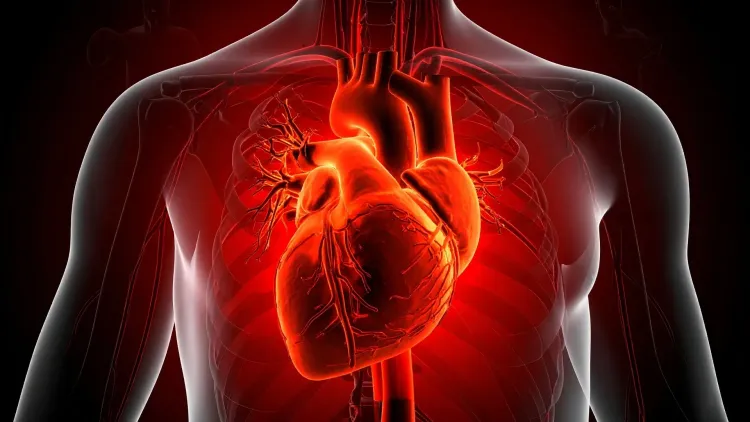Can AI Models Revolutionize Sudden Cardiac Death Prediction?

Synopsis
Key Takeaways
- AI enhances prediction accuracy of sudden cardiac death.
- MAARS model achieved 89% overall accuracy.
- Focus on hypertrophic cardiomyopathy, a major risk factor.
- Potential to save lives through better risk assessment.
- Future applications may extend to other heart conditions.
New York, July 5 (NationPress) A team of researchers from the United States has created an innovative artificial intelligence (AI) model that greatly exceeds the effectiveness of existing clinical guidelines in pinpointing patients at elevated risk for sudden cardiac death.
This advanced AI system, referred to as Multimodal AI for Ventricular Arrhythmia Risk Stratification (MAARS), combines cardiac MRI imaging with an extensive array of patient health data to uncover hidden indicators, thus enhancing the accuracy of cardiovascular risk assessment, according to a report by Xinhua News Agency.
The findings, published in the esteemed journal Nature Cardiovascular Research, concentrated on hypertrophic cardiomyopathy, one of the most prevalent hereditary heart disorders, which is a significant cause of sudden cardiac death among young individuals.
Senior author Natalia Trayanova, a researcher specializing in AI applications in cardiology at Johns Hopkins University, stated, "At present, we witness patients losing their lives in the prime of their youth due to a lack of protective measures, while others endure the burden of having defibrillators with no true benefit."
"We possess the capacity to forecast with remarkable precision whether a patient is at a very high risk of sudden cardiac death or not," Trayanova emphasized.
The clinical guidelines currently employed in the US and Europe reportedly have an accuracy rate of merely 50% in identifying at-risk patients.
In stark contrast, the MAARS model achieved an overall accuracy of 89%, and an impressive 93% for individuals aged 40 to 60, who are at the highest risk.
This AI model scrutinizes contrast-enhanced MRI scans for patterns indicative of heart scarring—an area that has traditionally posed interpretative challenges for physicians. By leveraging deep learning techniques on this previously underutilized data, the model identifies crucial predictors of sudden cardiac death.
Co-author Jonathan Chrispin, a cardiologist at Johns Hopkins, remarked, "Our research shows that this AI model markedly amplifies our ability to identify those at greatest risk compared to our current algorithms, possessing the potential to revolutionize clinical practice."
The research team is eager to conduct further evaluations of this model on a larger patient cohort and broaden its application to encompass additional cardiac conditions, such as cardiac sarcoidosis and arrhythmogenic right ventricular cardiomyopathy.










